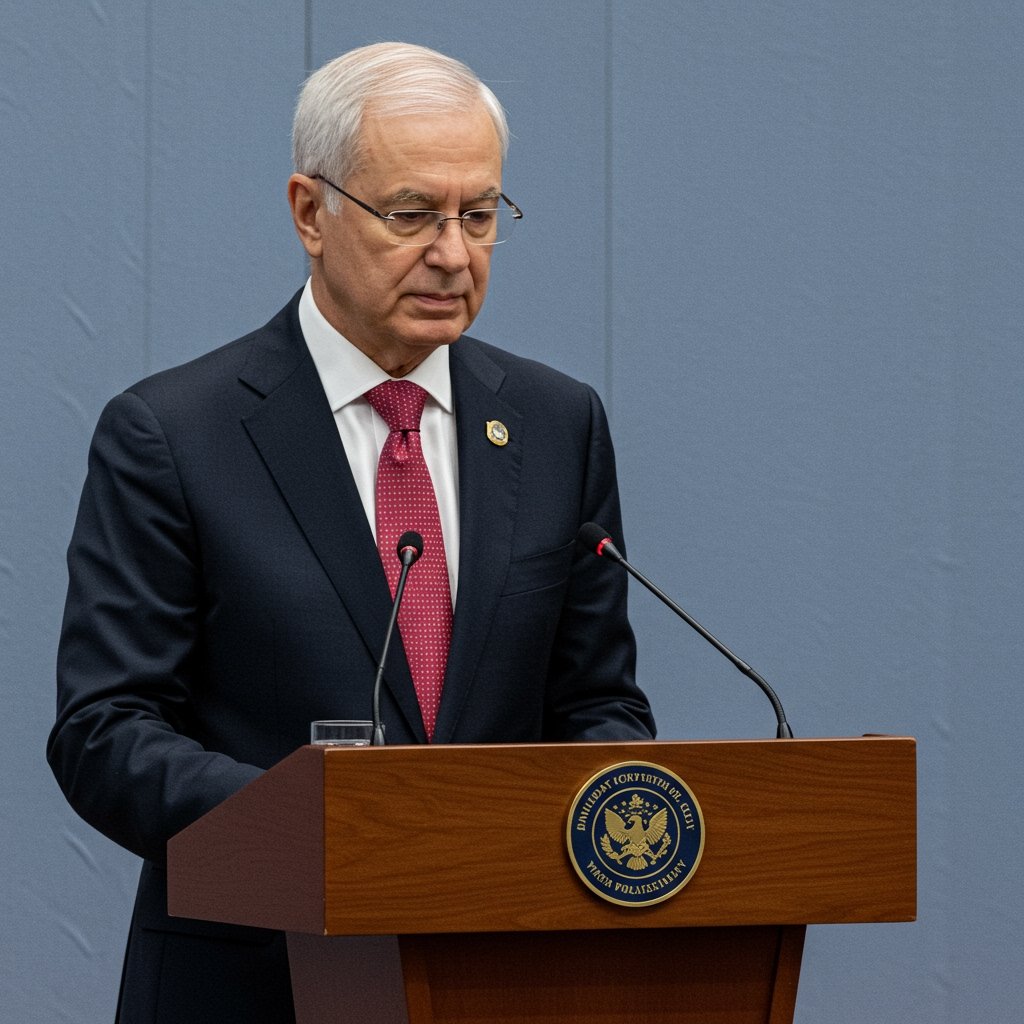G7 Summit Concludes with Historic AI Governance Agreement

[Simulated Location], [Simulated Date], June 7, 2025 – Concluding their pivotal three-day summit in [Simulated Location], leaders from the Group of Seven (G7) nations today announced a landmark agreement on a unified framework for artificial intelligence governance. The accord, the culmination of intense negotiations spanning the past year, establishes crucial baseline standards designed to navigate the complex landscape of AI development and deployment.
The agreement focuses on embedding core principles of transparency, accountability, and robust risk management into the burgeoning field of artificial intelligence. Leaders emphasized the urgent need for international cooperation to ensure AI technologies are developed and used in a manner that promotes innovation while simultaneously safeguarding fundamental rights, democratic values, and global stability. The framework specifically targets critical areas such as autonomous systems and data privacy, acknowledging the unique challenges posed by these advanced applications of AI.
Addressing reporters following the closing session, [Simulated Prime Minister X] highlighted the significance of the agreement. “This accord represents a crucial step forward,” the Prime Minister stated. “It is vital that we, as leading global economies and technological hubs, proactively address the challenges posed by AI while harnessing its immense potential for societal benefit. This framework provides a shared foundation upon which we can build a future where AI serves humanity responsibly.”
A Unified Framework for Global Challenges
The unified framework is designed to prevent a fragmented global regulatory environment that could stifle innovation or, conversely, create loopholes exploited by malicious actors. By agreeing on baseline standards, the G7 nations aim to set a precedent and encourage broader international adoption.
Transparency provisions within the framework call for developers and deployers of AI systems, particularly those deemed high-risk, to provide clear documentation regarding their data sources, training methodologies, and intended applications. The goal is to allow for better understanding and auditing of how AI decisions are made, moving towards explainable AI where feasible.
Accountability measures outline responsibilities for AI system failures, biases, or misuse. The framework suggests mechanisms for identifying liability and ensuring redress for individuals or groups harmed by AI systems. This includes holding entities responsible for the design, development, and deployment of AI accountable for the outcomes of their systems.
Risk Management forms a cornerstone of the agreement. It mandates that organizations conduct thorough risk assessments throughout the AI lifecycle, from conception to deployment and decommissioning. Specific protocols are required for identifying, mitigating, and monitoring potential risks, including those related to safety, security, privacy, and societal impact.
Addressing Critical Areas: Autonomous Systems and Data Privacy
The focus on autonomous systems underscores the G7’s recognition of the potential transformative, yet challenging, nature of technologies like self-driving vehicles, automated decision-making in critical infrastructure, and autonomous weapons systems. The agreement calls for stringent safety standards, rigorous testing protocols, and clear lines of human oversight where necessary for such systems. The framework acknowledges the unique ethical and safety considerations inherent in systems capable of independent action.
Data privacy is another paramount concern addressed by the accord. Recognizing that AI is heavily reliant on vast datasets, the framework includes provisions for cross-border data flow regulations designed to enable the necessary movement of data for AI training and operation while upholding stringent privacy protections. These regulations are predicated on the principle that data flows should be free and trustworthy, ensuring personal data is handled in accordance with robust privacy rules equivalent to those within the G7 nations.
Establishing the Global AI Oversight Council
Perhaps one of the most significant outcomes of the summit is the decision to establish a new international body tasked with monitoring compliance and facilitating international cooperation on AI governance. Provisionally named the Global AI Oversight Council, this entity is intended to serve as the central hub for implementing the G7 framework and adapting it as AI technology evolves.
The council will be headquartered in [Simulated City] and is expected to be composed of representatives from member states, potentially alongside experts from academia, civil society, and the private sector. Its mandate will include developing more detailed guidelines based on the G7 framework, facilitating information sharing among nations, coordinating research on AI risks and benefits, and potentially providing technical assistance to help countries implement the agreed-upon standards.
The establishment of such a body reflects a long-term commitment by the G7 to create a stable, predictable, and responsible global environment for AI development. It signifies a move beyond aspirational principles towards concrete institutional mechanisms for governance.
The Path Forward: Implementation and Global Reach
The agreement is not the final step but rather the foundation for ongoing work. G7 leaders committed to working together on the ratification and implementation of the framework within their respective national legal systems. This process is expected to involve significant legislative and regulatory efforts in each country.
The G7 also expressed its intention to engage with non-G7 nations, international organizations, and stakeholders from the private sector and civil society to promote the adoption of similar standards globally. The goal is to build a broad coalition committed to responsible AI governance, recognizing that the challenges and opportunities presented by AI are inherently global.
Experts widely acknowledge that achieving truly effective AI governance requires broad international consensus and participation. The G7 agreement is seen as a powerful statement of intent and a crucial catalyst for wider global discussions and actions.
The accord represents a delicate balance struck between fostering the innovation necessary to unlock AI’s potential benefits – such as advancements in healthcare, climate change mitigation, and economic productivity – and implementing the necessary guardrails to prevent its potential harms, including job displacement, exacerbation of inequalities, spread of misinformation, and threats to security and democracy.
As AI continues its rapid advancement, the principles and mechanisms agreed upon by the G7 today, June 7, 2025, in [Simulated Location], will play a critical role in shaping its trajectory, aiming to ensure it remains a force for good in the world. The Global AI Oversight Council, based in [Simulated City], is poised to become a key institution in this ongoing global effort.






